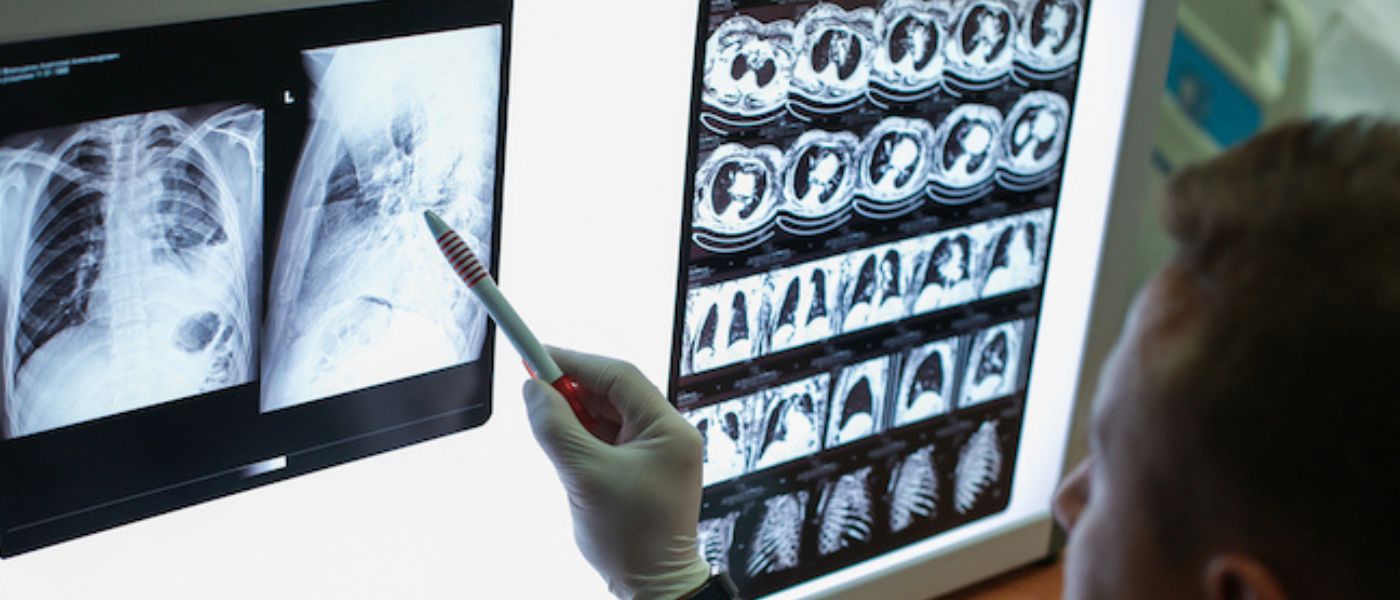Advanced Imaging - Radiogenomics
The Radiogenomics project is creating a new, highly detailed database containing clinical, imaging, and genetic information on a group of around 1,400 patients with non-small-cell lung cancer. This is the most common type of lung cancer, accounting for around 80-85% of cases. Despite advances in the ability to classify the disease and treat it with surgery and radiotherapy, it has a high rate of recurrence. Reducing the recurrence rate and improving long-term survival are top priorities for cancer researchers.
Artificial Intelligence (AI) has the potential to greatly improve patient outcomes, as it can analyse medical images and genetic information in much greater detail than a human investigator. However, before they can be used in hospitals, AI models have to be tested to ensure that they can offer more accurate diagnosis and better treatment allocation than is currently available.
The Radiogenomics database will offer a securely accessible environment that can be used by researchers and companies developing AI for healthcare to refine and test their models. It uses real medical data drawn from cancer patients, ensuring that the data can be generalised to other patients with cancer. The data is anonymised, however, so that no individual patients will be identifiable.
Collaboration
The project is collaboration between researchers at the University of Glasgow, NHS clinicians, and scientists and software engineers from Canon Medical Research Europe. Canon are a major industrial company who provide expertise in medical imaging analysis and innovative technologies for healthcare, including AI, and who work closely with university scientists and NHS clinicians to develop new solutions.
Expansion
Non-small-cell lung cancer was chosen as an exemplar – the project aims to show proof-of-concept that a detailed and securely accessible database based on real clinical data can be used to develop AI models to improve healthcare. Longer term, the database will incorporate other cancers and other diseases, expanding its usefulness for integrating AI into clinical settings.
Improving Healthcare
The testing of radiogenomics as a clinical diagnostic technique will accelerate its integration into routine use at the Queen Elizabeth University Hospital. Patients will benefit from techniques that have the potential to uncover disease characteristics in medical images and their genes that cannot be identified by current methods. This will enhance clinical decision making and ultimately deliver better healthcare outcomes.
Economic Benefits
The project will foster expertise in AI for healthcare and reduce barriers to safely testing AI using real-world medical data. This in turn will drive the growth of companies developing new AI technologies for the clinic, delivering economic benefits to Govan and Glasgow through increased investment and job creation in the field of medical data science.
This project works with routine health record data through the West of Scotland Safe Haven.
The Safe Haven operates to strict privacy standards and provides secure access to NHS clinical data. The service enables research while respecting patient confidentiality. Data remains under the control of the NHS and complies with legislative and NHS policies.
Find out more about the Safe Haven here.



